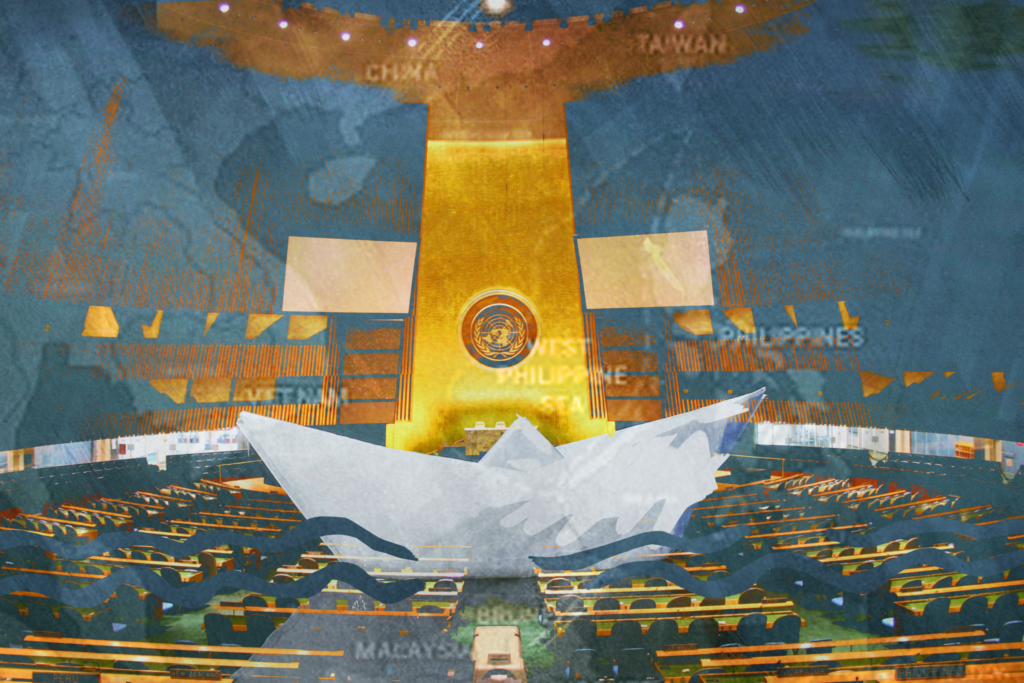Actions for WPS buried in news coverage

IN RECENT months, headlines tracked the ongoing tension in the West Philippine Sea (WPS), reporting episodes of harassment of Philippine vessels by the Chinese. In September, the Philippine Navy monitored 178 Chinese vessels in various locations within the WPS from September 24 to 30, comparing the lower number to the record-high of 251 ships documented in the previous week, September 17 to 23.
On September 15, the Philippines withdrew the BRP Teresa Magbanua from its five-month deployment at Escoda Shoal due to bad weather and the need to evacuate sick personnel, as the Philippine Coast Guard explained. Because of the routine harassment by Chinese vessels to block deliveries, Filipino crew members stationed there could not receive supplies and survived on rainwater and rice porridge for three weeks. Four crew members suffering from dehydration and stomach ailments had to be transported on stretchers.
Holding “frank” and “candid” talks on September 12 over this ongoing dispute, Beijing and Manila remained deadlocked over their territorial claims over WPS. Despite the escalation of incidents, only a few of the media actually provided context, pointing to possible actions that could ease the conflict.
Raising it to the UN
Inquirer.net reported that during the budget plenary debates at the House of Representatives, Nueva Ecija 2nd District Rep. Joseph Gilbert Violago on September 18 disclosed the plan of the Department of Foreign Affairs (DFA) plans to file a resolution before the United Nations General Assembly (UNGA), an international forum that could address the issues between the Philippines and China.
Media accounts pointed out that the move would serve to internationalize the issue and rally allies for the Philippines.
Philstar.com defined an UNGA resolution as a formal statement of opinion or recommendation adopted by the UNGA, the main deliberative body of the UN. While such resolutions are not legally binding, these are seen as expressions of the international community’s views and can influence global norms and policies.
In ANC’s Headstart and Philstar.com on September 17, former Supreme Court Justice Antonio Carpio, who has long advocated for Philippine sovereignty in the West Philippine Sea, emphasized the importance of asserting the country’s rights through international legal avenues.
Carpio argued that filing a second case with the UNGA could serve as a vital step in reinforcing the Philippines’ position against China’s expansive claims.
China has repeatedly refused to accept the 2016 ruling that rejected its nine-dash line claim. Initiating a second case would enable the Philippines to seek compensation for the damage caused by Chinese ships to Philippine vessels and deter further aggression, according to Carpio.
“We are running out of options. If we continue on this path, we will lose all our vessels as they will be continuously rammed,” the retired SC justice added.
Cristina Chi in the Philstar.com report cited Carpio’s counsel for the government to utilize multilateral forums to bolster the Philippine position, rallying support from other countries, based on international law and existing treaties. Failing to take decisive action, he said, could embolden China, leading to increased violations of Philippine sovereignty.
Carpio further highlighted that the Philippine government should not limit its approach to diplomatic engagement with China, especially as Beijing continues to employ “double talk” – language intended to deceive. Carpio described that engaging the international community in the issues of the WPS counters China’s persistent disregard for the 2016 arbitral ruling.
“The US and its allies are conducting operations in the West Philippine Sea, and when they do, they are telling China, ‘We can do this because of the arbitral award,'” Carpio stated.
Kurt Dela Peña from Inquirer.net on September 4 cited Don McLain Gill, a geopolitical analyst, who said that “China thrives in fragmentation;” and that China can throw its weight around in bilateral negotiations when it is engaged only with one country.
Pressing the press
CMFR has already pointed to the need for media to provide regular reviews of the discourse, highlighting new developments and calling attention to these so that more Filipinos know that the Philippine government has other options and should undertake these; that it is not entirely without any other option as suggested in the past by then President Duterte that the government can’t do anything about it.
The West Philippine Sea remains a contentious issue that encapsulates broader geopolitical dynamics in Asia. As the DFA considers filing a case with the UNGA, media coverage should ensure public awareness of its importance not just for Philippine sovereignty but also for regional stability and the observance of international law.
The news on these should break away from the mindset imposed by Rodrigo Duterte that the country is helpless and should accept the bullying because it has no capacity to fight back.
The insights of Justice Carpio highlight the legal and diplomatic avenues available to the Philippines. Media must keep up with the news about these options. A vigilant public can press for its government to pursue these, not just for the country but also for the future of international law and order.
Leave a Reply